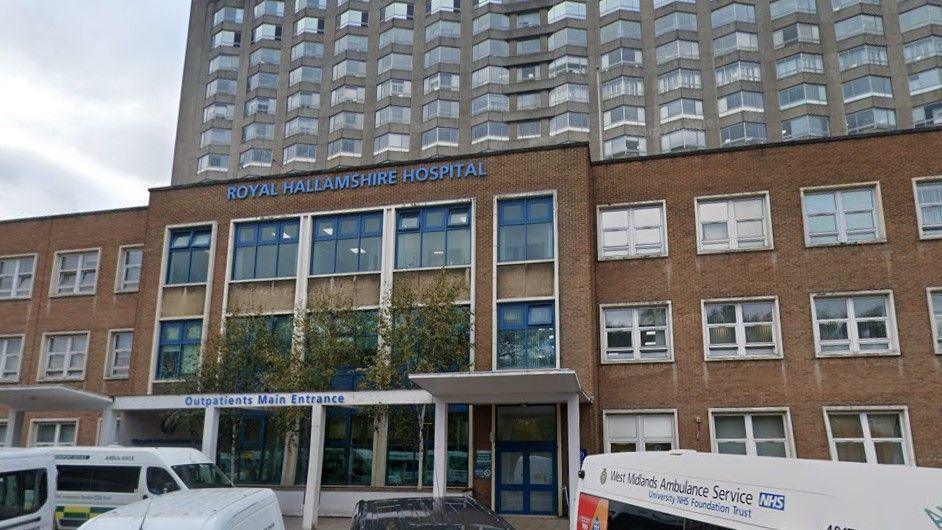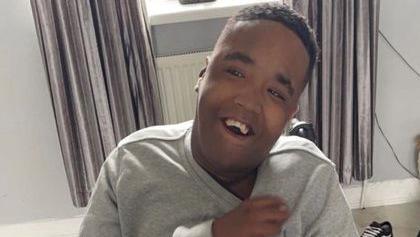Disabled man died after vital signs check delay

Mr Smith's parents said they "still can't accept Darnell's not here any more"
- Published
NHS bosses have been told to make improvements following the death of a vulnerable patient whose vital signs were checked just once in 12 hours.
Darnell Smith, 22, died in Royal Hallamshire Hospital in Sheffield after suffering complications linked to the blood disorder sickle cell disease.
A coroner has said the hospital missed an opportunity to identify his condition was deteriorating.
Sheffield Teaching Hospitals NHS Foundation Trust has apologised and said it had learned from the case.
Mr Smith, from Sheffield, also had cerebral palsy, was non-verbal and was completely dependent on others for his daily needs and medical care.
He was admitted to hospital in November 2022 with a suspected sickle cell crisis - a complication where the blood flow is blocked due to cells becoming stuck in a blood vessel - and a possible respiratory tract infection.
Despite being placed in an induced coma and receiving a blood transfusion, he died 16 days later.

Mr Smith died at Royal Hallamshire Hospital in Sheffield in November 2022 - 16 days after being admitted
An inquest earlier this month found his vital signs were checked at 02:16 GMT on 7 November, shortly after his admission, but not checked again until more than 12 hours later.
That was despite Mr Smith having an individualised care plan which instructed his vital signs should be checked hourly for a minimum of six hours.
The inquest was told that his health passport was not in his records and was not available to staff until more than eight-and-a-half hours after his admission.
A prevention of future deaths report, filed by senior coroner Tanyka Rawden, said there was "a risk that future deaths will occur unless action is taken" by the hospitals trust.
Mrs Rawden added: "Individualised care plans are crucial to a patient’s care and it is my view that without knowledge or sight of them by treating clinicians there is a real risk of further deaths."

Mr Smith had sickle cell disease - a blood disorder
Mr Smith's parents Leila and Errol said "to this day we still can't accept that Darnell's not here any more".
In a statement issued through their solicitors, Irwin Mitchell, they said: "He was our beloved boy and our lives were dedicated to looking after him. There’s not a day goes by when we don’t miss him.
“Sickle cell disease is a complex condition and we feel like there’s still not enough known about it and how to care for someone living with it, particularly those who also have learning difficulties like Darnell did."
The Sheffield Teaching Hospitals NHS Foundation Trust said it was implementing a new electronic patient care record system this year, which would ensure all patient records were more readily accessible to its staff.
The trust's medical director, Dr Jennifer Hill, said: "I would like to apologise again that we did not carry out Darnell’s observations as frequently as we should have done, and that his individualised care plan was not immediately visible to staff.
"I know that we cannot take away the pain that Darnell’s family are feeling, but I hope that I can reassure them that we have learnt from this and are taking actions to limit the chances of this happening again."
Follow BBC Yorkshire on Facebook, external, X (formerly Twitter), external and Instagram, external. Send your story ideas to yorkslincs.news@bbc.co.uk.